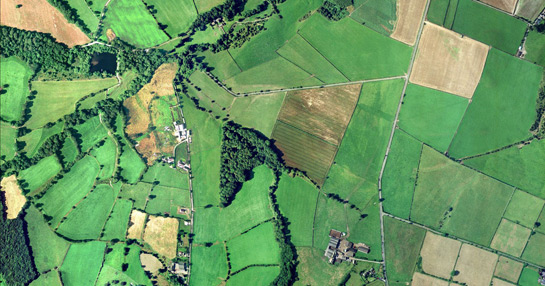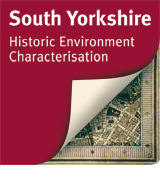About the project
Historic Environment Characterisation - what is it and why is it important?
Historic Characterisation starts by describing the uses of today’s landscape. Maps, historical records and archaeological evidence are then used to establish the age of a place’s characteristic features.
The different histories are what have made the place that you live distinctive and different from those around it. Characterisation uses research into these historic processes to describe and understand what makes places unique.
Our project has shown that changes to our landscape now happen on a scale and at a speed which appears more dramatic than at any point in the past 1000 years. However, we can also demonstrate that the places that we now see as timeless, like the moors of the Peak District, and even our ‘ancient’ woodlands are themselves the results of human actions.

© The GeoInformation Group, 2002.
So we can’t see change as either a new or a bad thing. It’s simply at the heart of how people work out how to live. Characterisation gives us an opportunity to manage these changes by building a good understanding of the evolution of the landscape that surrounds us. Characterisation is not about preventing change but ensuring that decisions are based on facts.
Most people would agree that it is important that as we change our towns and countryside we should identify special places, such as our most ancient buildings and monuments, to be preserved and kept as evidence of the story of the past. National government, local councils and English Heritage already work together to keep manage these places, some of which, like Listed Buildings and Scheduled Monuments, are protected by law. Characterisation helps to give a background to these sites and buildings by filling in the gaps in between.
It is important to think about how best we can preserve the evidence of the past as we move towards the future. This is why one of the guiding principles of this process is to work on all parts of the landscape not just those areas already considered ‘special’.
